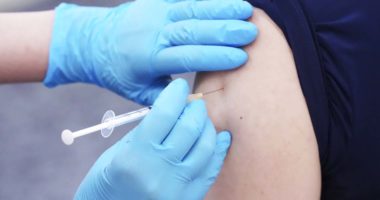Go straight to the content.

State leaders in Massachusetts are taking decisive action and potentially offering financial incentives due to a decline in the state’s vaccination rate.
The new “Mass VaxMillions” lottery has been announced by Gov. Charlie Baker, offering vaccinated residents an opportunity to win life-altering prizes.
Adults have the opportunity to win five individual $1 million prizes, while children aged 12-17 have the chance to receive five full-ride college scholarships worth $300,000 each.
State officials hope lottery will drive vaccines
Vaccinated? You can play.
Haven’t arrived yet? Don’t worry, you still have some time left.
Residents who are eligible and have been vaccinated can participate in the drawing. The entry period begins on July 1 and concludes on August 20. Weekly announcements will be made from the week of July 26 to August 27.
Please refer to the link provided for complete information.
In order to be victorious, an individual must meet two criteria: being a permanent resident of Massachusetts and having received the vaccination within the state.
During a media conference, Baker urged those who have been hesitating to get vaccinated to step forward. He emphasized the importance of protecting oneself, friends, co-workers, and neighbors by getting vaccinated in the commonwealth.
The introduction of the lottery program follows other initiatives aimed at facilitating vaccination, such as distributing gift cards and setting up pop-up clinics, all with the goal of making the process more convenient than ever before.
Baker emphasized that the recent efforts would have a significant impact on any increase.
“That has the potential to be valued by hundreds of thousands of individuals.”
Massachusetts’ vaccination rate surpasses that of numerous states, despite the state’s desperate appeals.
According to the Mayo Clinic, approximately 70% of Massachusetts’ population, which amounts to 6.85 million individuals, have received at least one dose of the vaccine. Additionally, nearly 60% of the population is fully vaccinated.
In comparison to Alabama, where the percentages stand at 37% and 30% respectively, or even Delaware, with percentages of 56% and 46%, Massachusetts can feel satisfied.
However, an issue remains unresolved: the deceleration of progress.
In the past few weeks, officials have expressed their disappointment over the deceleration of vaccination-rate progress. This setback comes after failing to achieve the state’s target of administering 4.1 million full vaccinations by early June.
Minority communities have experienced a significant presence of slowdowns, with vaccination rates below 50% among Black and Latino residents.
According to WBUR, Dr. Shira Doron, an epidemiologist at Tufts Medical Center, expressed the goal of achieving a near-perfect 100% rate.
“We really do.”
Mass far from alone in vaccine promotions
Massachusetts’ action is not without precedent.
Similar lotteries have been initiated by other states, with Ohio being the most prominent, in order to boost attendance at vaccination sites.
On Wednesday, the state of Ohio, also known as the Buckeye State, declared its fourth $1 million prize recipient, who happens to be a college professor. Additionally, they announced their fourth recipient of a full-ride scholarship, a talented 17-year-old high school baseball player.
According to Baker, it is interesting to note that he had a conversation with Ohio Gov. Mike DeWine before Massachusetts’ program was revealed. It is estimated that Ohio’s program played a significant role in increasing the state’s vaccination rate by 45%.
West Virginia, California, and New York have implemented lottery systems that are akin to the one in Ohio, which includes trucks, hunting licenses, and complimentary rifles.
There are also initiatives that have a lesser impact on life.
Indiana offers complimentary Girl Scout cookies, New York City provides free Shake Shack fries, Maryland presents free pizza, and New Jersey and Connecticut grant free beer. Meanwhile, Miami, Florida offers SHOTS to its visitors.
Health officials have generally praised the use of vaccine incentives.
According to Monica Gandhi, a professor at the University of California’s medical school, incentivizing desired public health behaviors is entirely appropriate and has already proven to be effective in the vaccine campaign, as reported by Scientific America.
“Indulging in beer, doughnuts, and purchasing $1-million lottery tickets is simply a reflection of human nature.”






